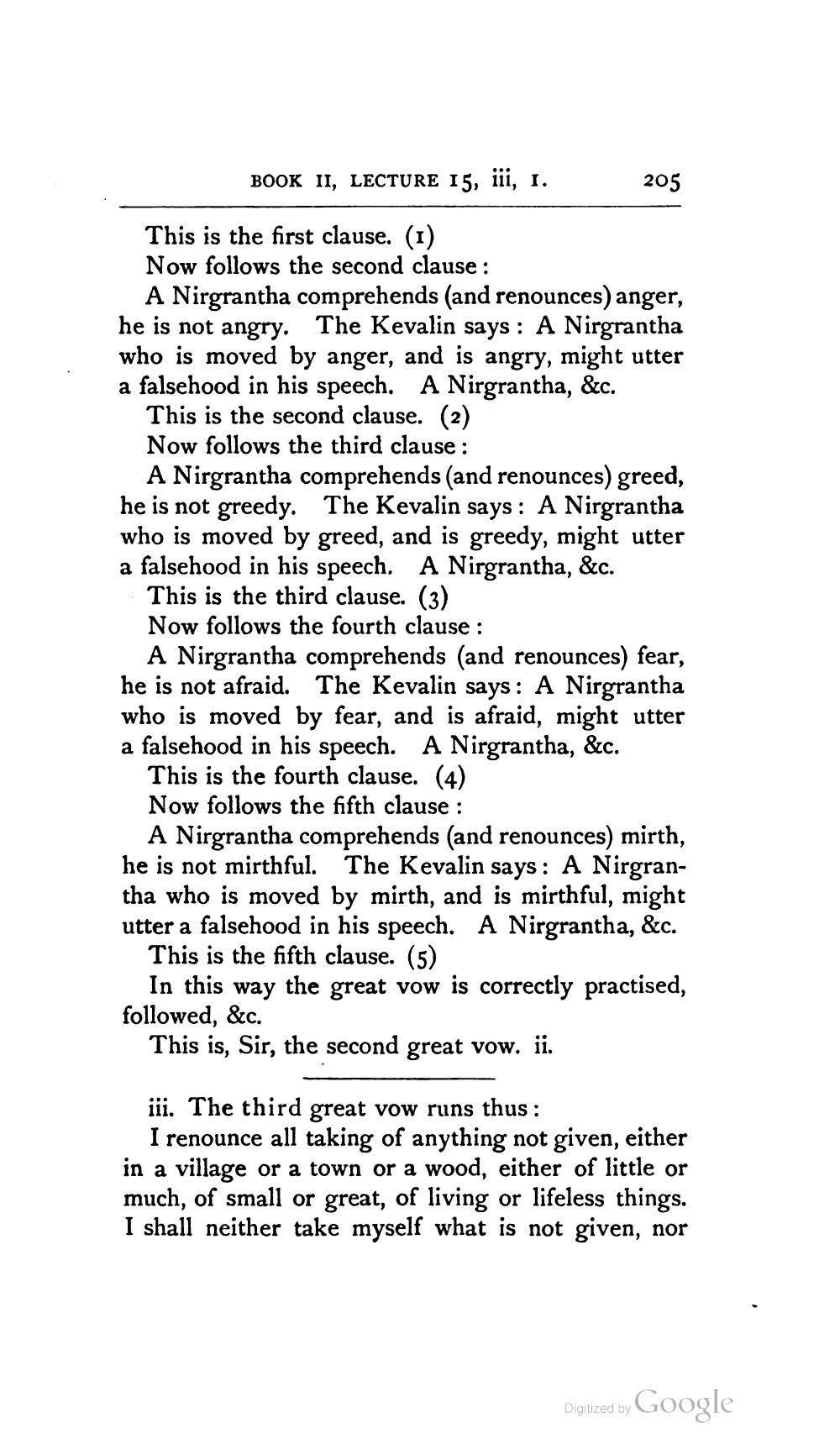________________
BOOK II, LECTURE 15, iii, 1.
205
This is the first clause. (1) Now follows the second clause:
A Nirgrantha comprehends (and renounces) anger, he is not angry. The Kevalin says : A Nirgrantha who is moved by anger, and is angry, might utter a falsehood in his speech. A Nirgrantha, &c.
This is the second clause. (2) Now follows the third clause :
A Nirgrantha comprehends (and renounces) greed, he is not greedy. The Kevalin says: A Nirgrantha who is moved by greed, and is greedy, might utter a falsehood in his speech. A Nirgrantha, &c.
This is the third clause. (3) Now follows the fourth clause :
A Nirgrantha comprehends (and renounces) fear, he is not afraid. The Kevalin says: A Nirgrantha who is moved by fear, and is afraid, might utter a falsehood in his speech. A Nirgrantha, &c.
This is the fourth clause. (4) Now follows the fifth clause :
A Nirgrantha comprehends (and renounces) mirth, he is not mirthful. The Kevalin says: A Nirgrantha who is moved by mirth, and is mirthful, might utter a falsehood in his speech. A Nirgrantha, &c.
This is the fifth clause. (5)
In this way the great vow is correctly practised, followed, &c.
This is, Sir, the second great vow. ii.
iii. The third great vow runs thus:
I renounce all taking of anything not given, either in a village or a town or a wood, either of little or much, of small or great, of living or lifeless things. I shall neither take myself what is not given, nor
Digitized by Google




